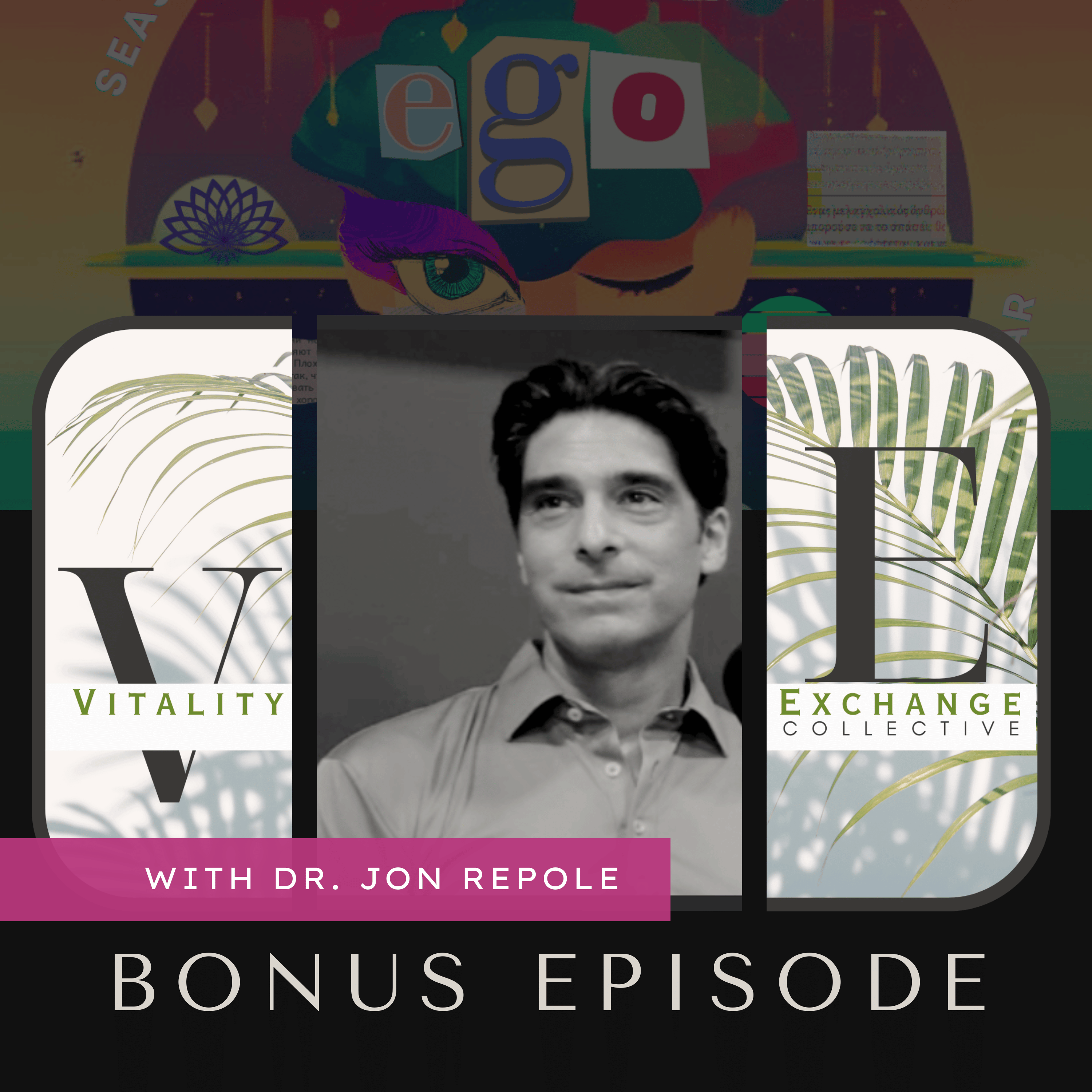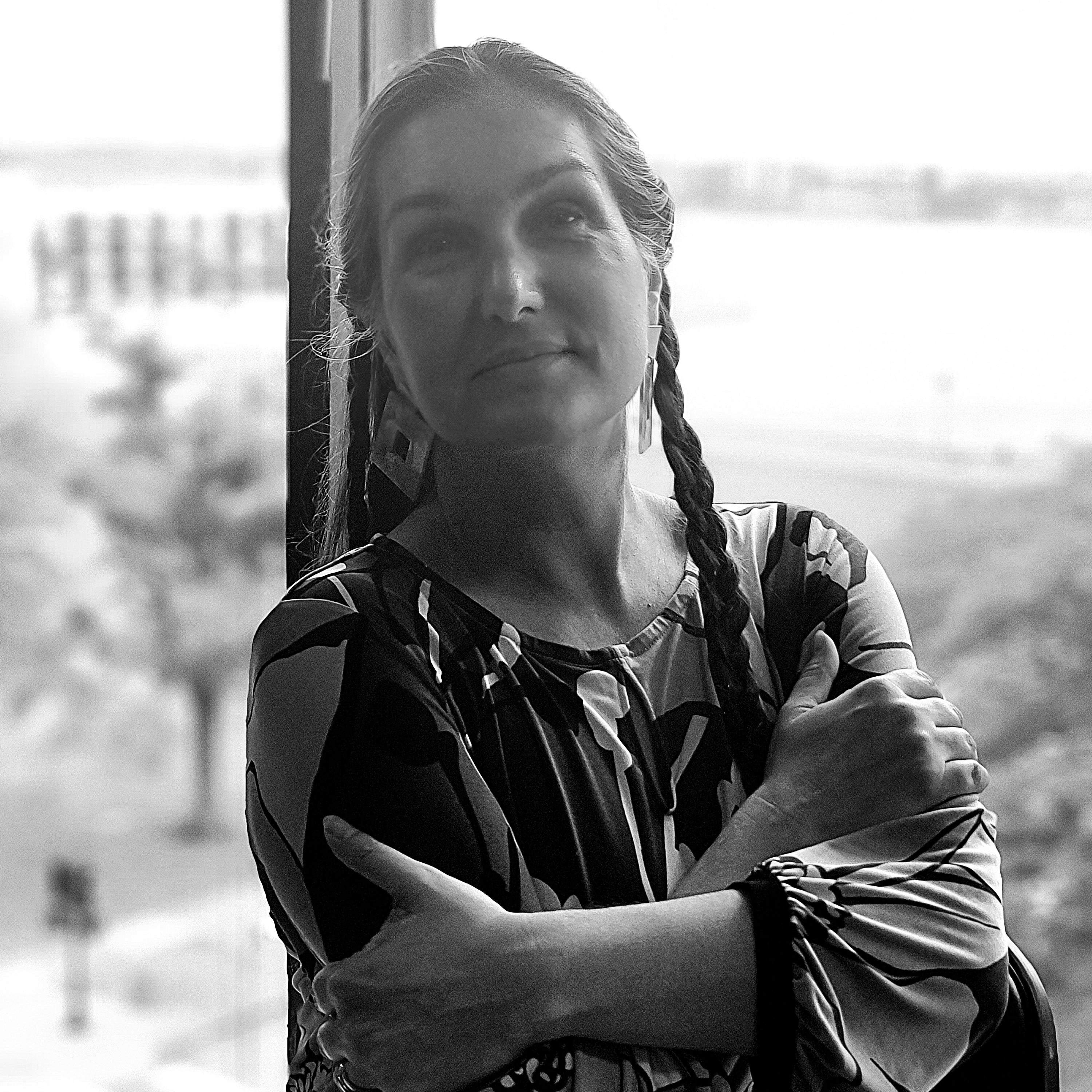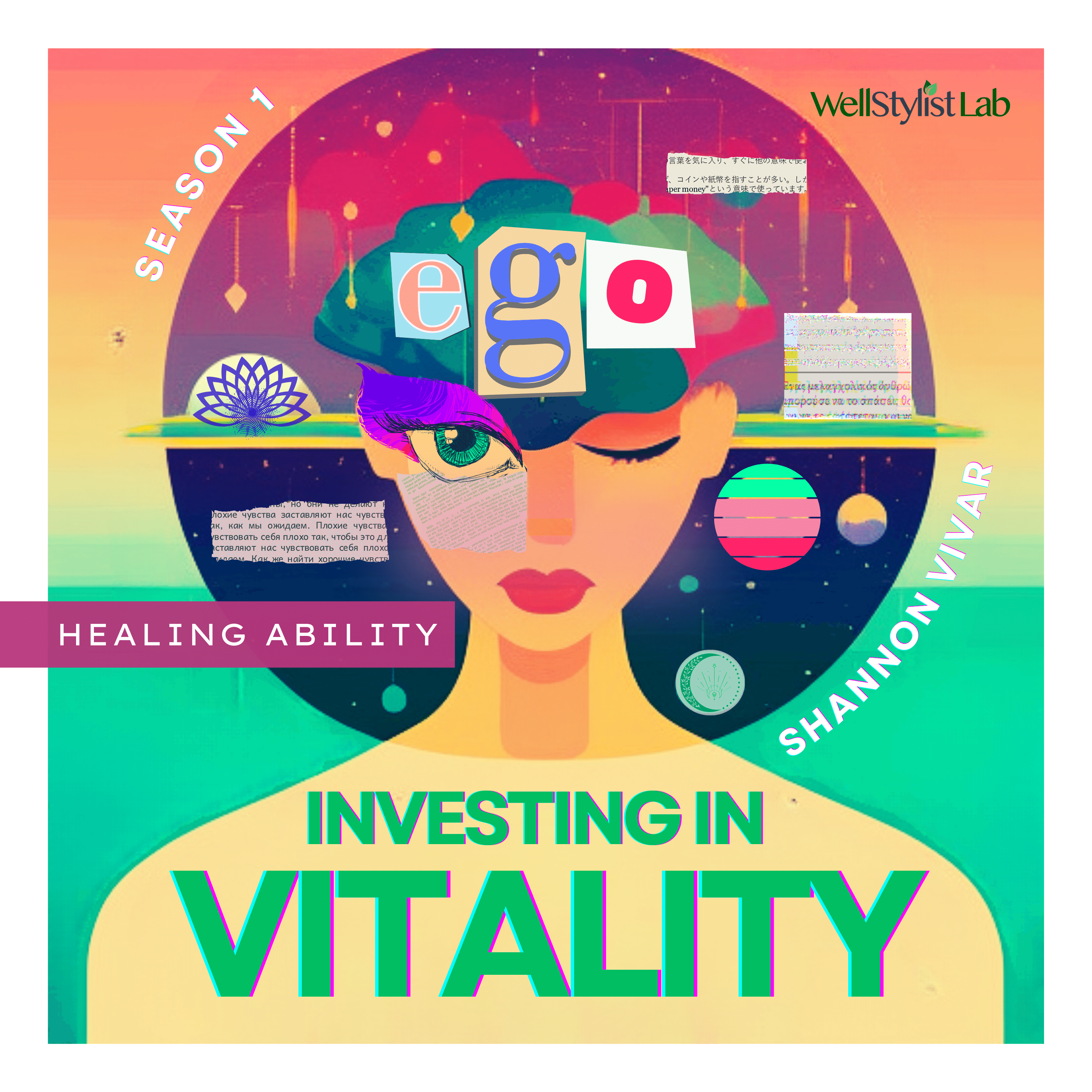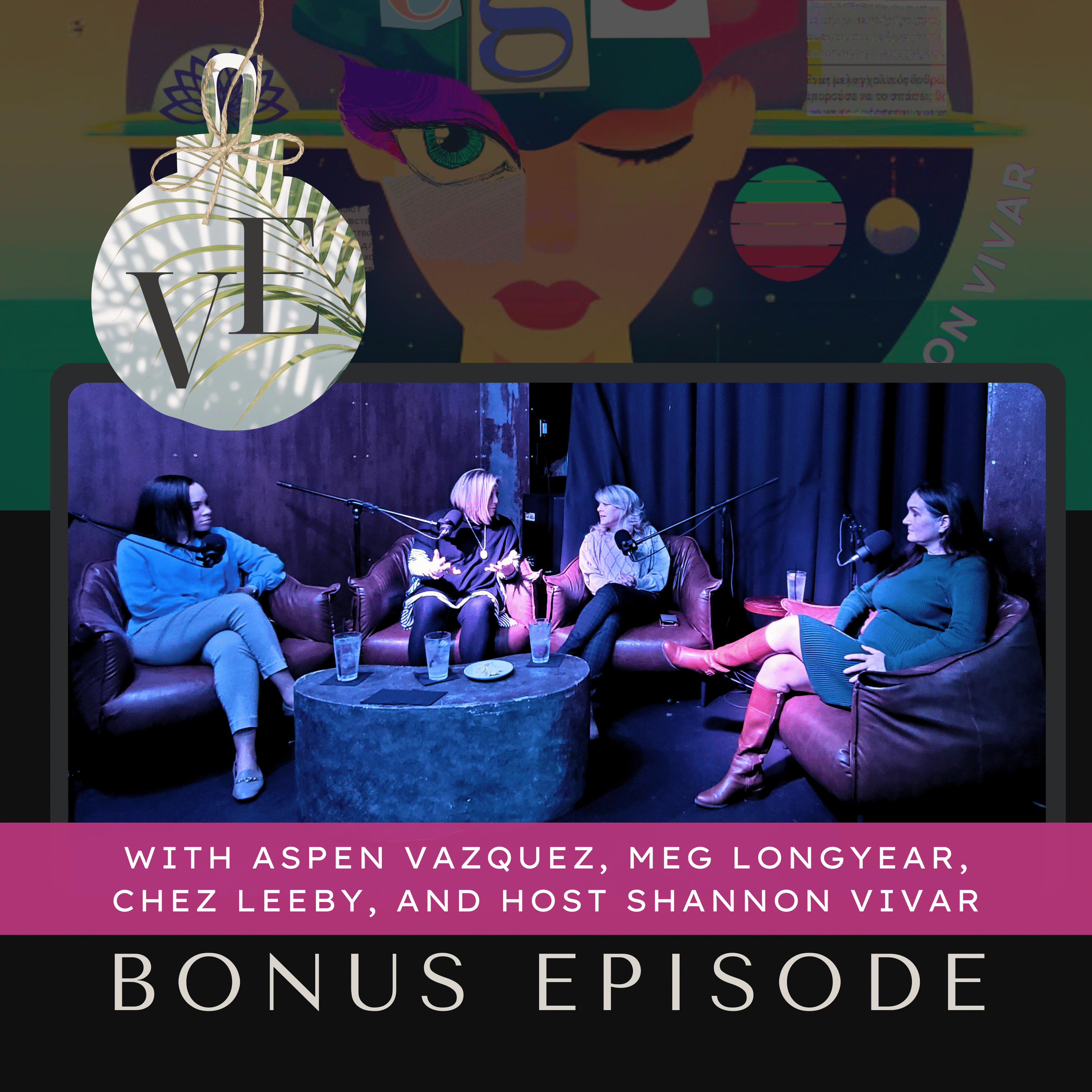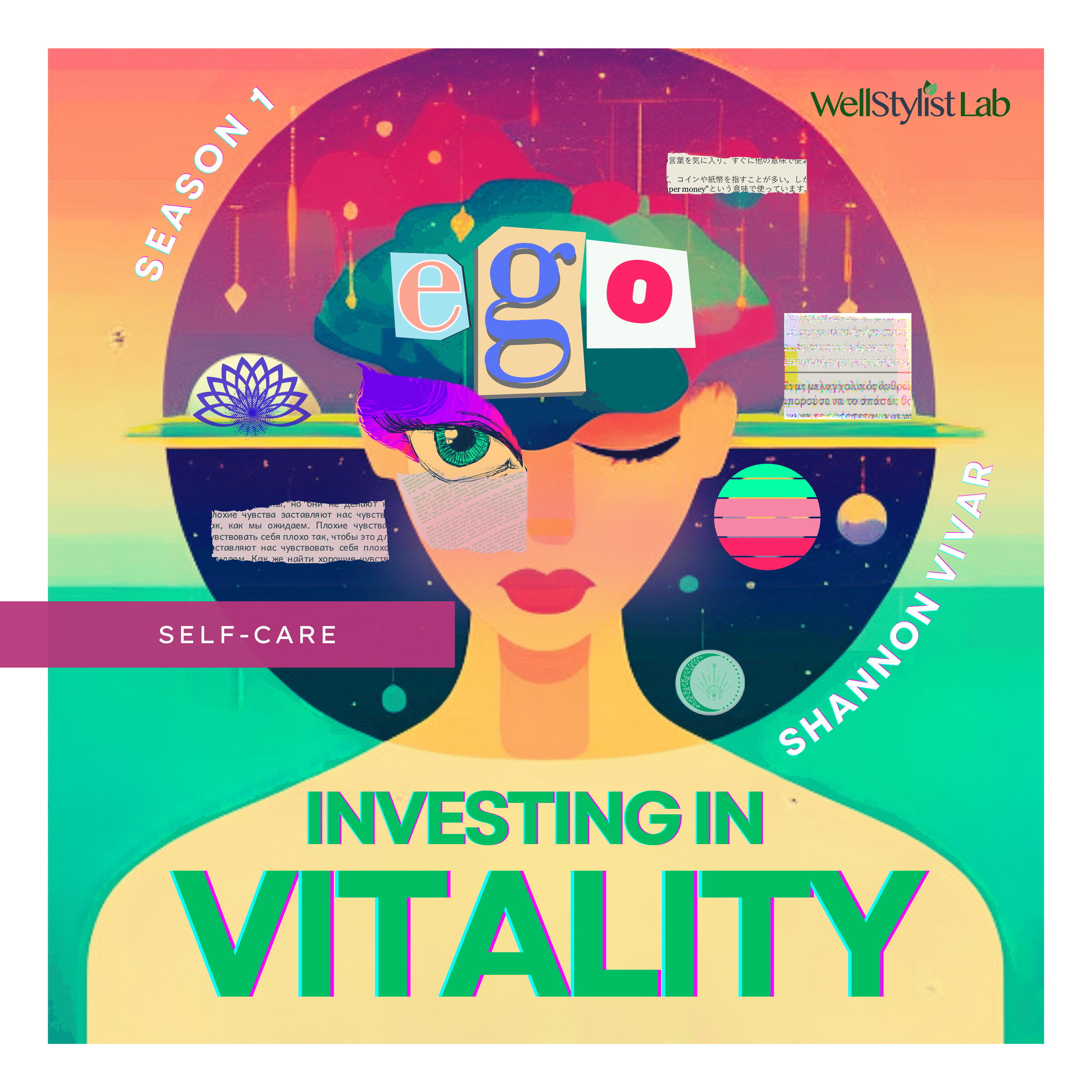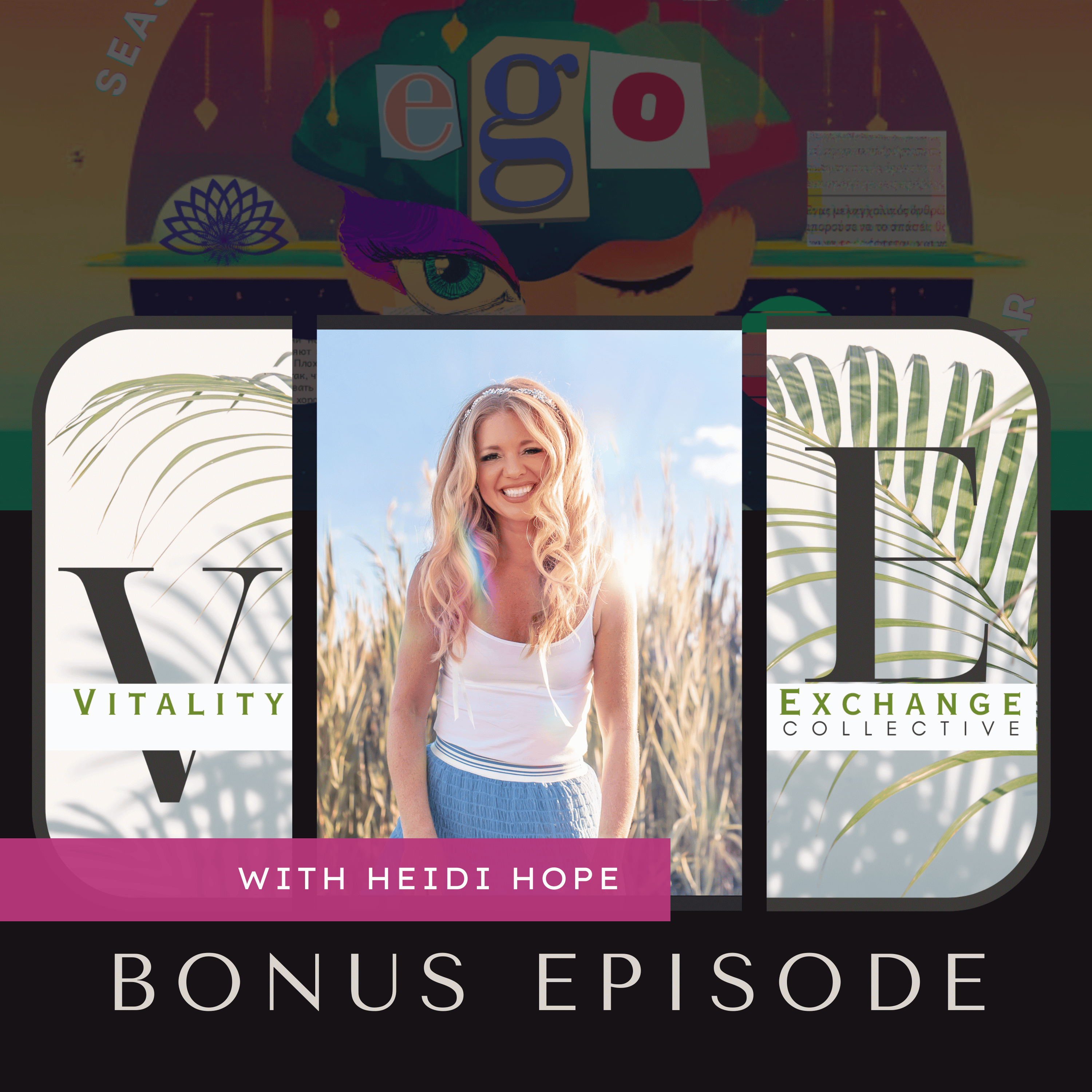Episode Transcript
Welcome to Vitality Exchange Boosts in Conversations, the interview series behind the Investing in Vitality podcast. On today's bonus episode, I'm sharing a clip from my conversation with Dr. Jon Repole, a self actualization health coach, author, and the clinical director at Jacksonville Health and Wellness Center.
Dr. Jon and I talk about why we need to switch our illness story to a wellness story by doing good and putting heart into the health equation. The full conversation with Dr. Jon Repole can be found in the Vitality Exchange group within the WellStylist Lab community platform. I think people don't. Know what is available to them. Like the power that made the body can heal the body. You know, it's like we need to get out of the way in order for it to heal.
All medical offices should be coaching to really start a patient. First things first, healthy start exercising self-care practices.
And then once you get that fundamental root, then you start laying on these amazing technology, biohacking and all the other things. But if the root's not there, , it's hard to, to move upward, you know? And so we really try to change that paradigm. And, some people like it and some people don't. You know, because we're, we're asking people to be very, Autonomous about their own health and, and to, to not just throw a thousand supplements at them
right. What, you don't have a cure or a pill or a, a instant, you know, um, packet that I can put down my throat and all of a sudden I'm gonna feel, , 500% better. Not yet. No, no, no. Unfortunately. Well, I, I do think it's the culture, right? Yeah. It's the way we're taught that, that instant gratification.
I mean, quite frankly, think about all of our lives anyways. There's just so many things that we're supposed to be doing. We're supposed to be working to earn a living, to be safe and secure right?
So all of these things, they start adding up and, you know, normal people are just like, when, where, where's the break? And I feel like we, we are already automatically put into that mindset. Mm-hmm. Right? So to unlearn that and actually take a more holistic approach. I could see why it feels uncomfortable and there's a lot of pushback. Yeah. Everybody has an illness story. And it's this story about, you know, where they're currently at, why they're currently here.
And the very first thing that we ask our functional medicine patients to do, our holistic patient to sign a contract with themselves, and it's a wellness story and what is that story that they want to step into, right? And, uh, who do they want to become, you know, actualizing that potential.
We lose willpower. We really have to have that. Why power? It's a mind game. It's interesting. We have a patient come in. They may have, stage zero, breast cancer as an example.
And, uh, you know, they're, they're scared out of their mind because the trajectory there is chemo and radiation and dah, dah, dah, dah. And, um, and it's presented in such a way as that there, there is no option, there's zero options available. And it's like, yeah, the, the body can do a lot of amazing. So I don't think we're giving our body the credit it deserves.
Um, I think we are abusing it in ways that we've never abused it before, and , we're our own blocks. We're the issue. If we can get our own self, ego out of the way, I think, uh, it's pretty remarkable with the body might be to do. Yeah. I keep seeing all of these amazing healing stories and it really is truly starts with the belief.
Yeah. So, and people. Sometimes poo, you know, that's 'cause like they poo poo the woo wooooooo, the woo woo. Yeah. But you know, and that's why like we always start, like we were talking about with that illness story to wellness story.
Like, you know, you have to create your new, belief system. Just to give an example to, to people listening, it's like, well, you know, I don't necessarily know if I believe that my beliefs shape, my health. Two people waiting for a rollercoaster. One person is cool, calm and collect, wetting the other person's blood pressure up the other person's pulse is up and there's no difference other than thought about what's to happen.
So just magnify that with belief systems that are intertwined around their health and their wellness and what they should or what they can't do. And. Chasing low priority values every day and not going after the valuable, like, wow, you can change your life, , dramatically. But your thought just in that simple example, has an effect.
But imagine, you know, some people have stinky thoughts, like they long, they're gonna have stinky physiology all day long too. So yeah, it's, it, it really does affect it. And it's not the whole answer, of course. It's, you know, it's part of this whole plan, you know, healthy exercising, thinking right, pooping Right.
All the things that we need to do. Right. You know? , do you believe that disease starts with the, the negative thoughts and the chronic stress? Is that one of the ways that disease starts in the body? Yeah. I think one of the tenets that we hold in our office, you know, and that I've written about is.
It's a systems theory. You know, this idea that there is no such thing as cause and effect. Okay? It's causes and effects. And although that's such a simple equation, it tells us causes with the SS, equal effects, everything affects everything. So all is fair game, physical, emotional, mental, relational, spiritual, genetic, epigenetic, all of that.
Environmental. Environmental, yeah. You name it. And so, you know, it's, I think we always try to look for that one pigeonhole thing. But to answer your question, absolutely. Is your diet play a role? Absolutely. Like it's, yes, it's everything but health is, I believe it's a science, but I also think it's an art because then you look at all of the things that are affecting you, and your job is to intuitively.
Maybe with the help of a practitioner and maybe objective findings, but really subjectively, intuitively the art part is what are the low hanging fruit right now that I need to work on? The three or four things that will create the domino effect that will me the trajectory I need. And that's part of the art is to really figure out what those things are.
Um, but yeah, I think it's, I think everything affects everything. And that's kind of, you know, our approach to, to health and why we go in so many different directions with, um, if they let us, you know, we always teach 'em what they need and give 'em what they want, you know, make them one Yeah. That they need.
Yes, exactly. Um, so you, have a book, it's illness to wellness.
Yeah, it's illness to wellness. And Illness to Wellness has within it this concept of eye to weight. And so, and it's an an important concept to me because we don't wanna have another health book that leaves the heart, you know, out of the equation.
Um, and the idea is that we're moving from an eye center of consciousness, which is a focusing in on ego-centric concerns. I, me mind entitlement. I could do whatever I want to the environment. There's no responsibility to others, animals. And we're moving into, we centered consciousness. And this we centered consciousness is beautiful.
It's based on integral theory and about five to 10% right now, the population is at this cosmic consciousness, where it's this all encompassing love concern for all human beings regardless of age, sex, gender, all of that, um, all sentient creatures, regardless of the species, the ant to the dog.
Um, all of manifestation. And what comes out of that is that doing good is good for you. In other words, when we choose to not engage in factory farming, um, we protect our body and we protect, you know, animals and give somebody a hug. I get oxytocin hit. And so the game of life is set up exactly how it should be.
Right. When we do the right thing, we get rewarded. And we will follow our heart. Um, not only does our love and compassion expand, but our health expands. And that's kind of the thesis that's running through the book because I think it's a big part, that it's left out of the health equation.
Mm-hmm. In my opinion. Yeah. I think there's a lot of things, right, like that are coming out science-based, right? And it's not just woowoo. Yeah. A lot of people think it's woowoo, but it's actually science-based. I mean, they have, you have quantum physics and the concept that we are just energy, we're not actually solid matter.
and that you can feel other people's energy and you have a, you know, um, impact on other people. We don't realize. How we're contributing to the collective consciousness in everything that we do. We are literally, you know, contributing to it. It's like our, spiritual genetics has contributed to the collective conscious, every decision that we make, making it easier for somebody else to do the same thing.
In my own formulation of kind of , what is the, the mass disease of, humankind. It's the addiction to the small conditioned little self and, you know, we're basically trapped in this box of, of addiction to this old, outdated self that doesn't realize that it can grow like a butterfly.
You know? And, and we trap it and don't allow it to do that. But that's, yeah, that's, that's the biggest issue I think, is that kind of breaking through that ego, for sure.
Thank you for listening. Check out the Vitality Exchange for more resources, interaction, and online masterclasses.
Dr. John and I talk about everything from patient relations to his new book, Illness to Wellness, and his certificate program, Wellness by Design, a functional and holistic medicine coaching program that will be launching in 2024.
You can visit his website at www.itowecoach.com and www.drrepole.com or follow him on Instagram @drjonrepole or on Facebook @jonrepole next week. Be on the lookout for investing in Vitality at episode four, conscious Consumerism.
